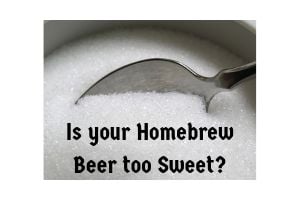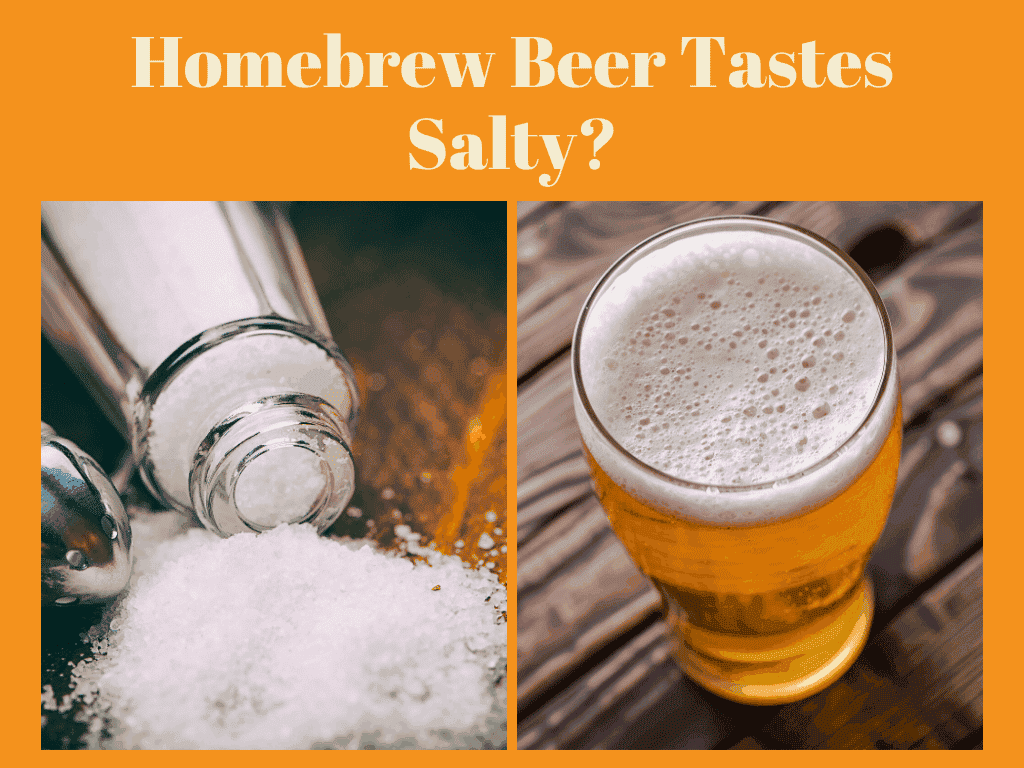It can be incredibly frustrating to deal with off-flavors in your homebrew and a beer that tastes soapy is one of the stranger problems to have. Today, we’ll look at what could cause a homebrew beer to taste like soap or detergent!
Homebrew beer can taste soapy if it was left in primary fermentation long enough for the fatty acids to break down inside the trub, the pH is too high or the sulfates too low in the brewing water, or your taste buds react to hops in a strange way.
Like most things, it’s hard to pin down the one true reason that you are dealing with soapy beer and there could very well be multiple contributing factors. Let’s take a deeper look at how the trub present during primary fermentation, brewing water, and hops could all make you think that your beer has an off-taste.
Topics We Cover
What causes a soapy taste in beer?
While this would be a weird question, generally speaking, you are here now because it is your current reality.
Of course, the simplest answer here is that you simply have soap residue in your glassware or you didn’t do a good job rinsing your equipment after you cleaned it. But, I’m sure that you already thought of that one and ruled it out.
Next, you’ll need to make sure that your fermentation, water, and hops aren’t to blame!
Check your trub
Many, many things occur during the beer brewing process.
On brew day, probably the most intense and complicated part of homebrewing, one of the things that we have to manage is the trub. Trub is essentially all of the gunk that is left over after your boil is complete and forms when the proteins inside the malt break out of the solution and clump up together. That’s where the hot and cold breaks get their names – when the proteins are breaking out.
About half of the trub will come from the hot break (the one that happens during the boil) and the other half from the cold break (when you cool down the wort after the boil).
When it comes to soapy beer, it’s the hot break that is the most important thing to focus on. That’s because the hot break is primarily made of up fatty acids and the stronger the hot break, the more that are pulled out of the beer. Once fatty acids start to break down, you get soap.
So, basically, if you have a lot of trub inside your fermenter and you leave it in there long enough for the fatty acids to break down, there will literally be soap inside your beer.
Don’t freak out, it’s not really going to hurt you or anything. Still, it’s definitely NOT a flavor that we want inside our beers!
So, what can we do?
Well, for starters, try to minimize the amount of trub that you allow inside your fermenter when you transfer the liquid from the brew kettle into the fermenting vessel. Here are a few tips that can help:
- Consider using a kettle fining such as PVPP (Polyvinylpolypyrrolidone – say that 5 times fast!)
- Let your wort settle in the kettle for an hour after the boil is complete to allow the trub to become as dense as possible.
- Instead of pouring the wort into your fermenting vessel, rack it out to leave the majority of the trub behind
If you normally ferment in the primary for a long time (as in months) then you might want to consider shortening the time a little because the longer you let it sit, the more fatty acids will start to break down and mix with your beer. Unfortunately, all beers will require a different ‘ideal’ amount of fermentation time, but all other things being equal, a shorter primary will equal less fatty acid breakdown.
Check your water
Even if you think that you’ve managed your trub carefully, you probably still want to check two critical elements of your water: the pH and the sulfate content.
I mentioned earlier that the stronger the hot break, the more fatty acid that was pulled out of the beer. For brewing purposes, a strong hot break is a good thing and the pH of your water can make a big impact on how well your break goes.
Generally speaking, stronger hot breaks occur with lower-pH worts. So, if you test your water and it has a high pH (alkaline) then it is probably causing you trouble.
Another thing that you’ll want to check, since we are examining our water, is the sulfate content.
I have read before that beer, especially super hoppy beer, can sometimes have a soapy flavor because of the sulfate content of the water. Basically, high sulfate (SO4-2) content will allow your hops to shine with a firm bitterness. If your water supply is super soft (a lack of minerals) then you are likely to run into this problem.
The simplest way to add sulfates to your brewing water is to add a tablespoon of food-grade gypsum (calcium sulfate) for a 5-gallon batch of beer. Don’t add too much, especially if you are unsure of your complete water profile, because too much sulfate can actually cause a laxative effect!
A little interesting history on this topic
Adding sulfates to your brew water is only one part of a larger water story.
While many brewers might not fully appreciate how important something like water is to the brewing process, it has a long history. IPAs were originally created in a place called Burton on Trent (don’t you just love English names for towns?) and the water there is particularly hard and has a strong mix of minerals in the water profile including a very high level of sulfates.
Many brewers try to emulate this water by adding those minerals into their water in a process called ‘Burtonizing the water.’ It is by no means a requirement to get your water to the same profile as the Burton water, but it can provide a noticeable difference in many beer styles, especially English Pale Ales or English IPAs.
For reference, here is the content of the water:
| Calcium (Ca+2) | 352.0 ppm |
| Magnesium (Mg+2) | 45.0 ppm |
| Sodium (Na+1) | 44.0 ppm |
| Chloride (Cl-1) | 16.0 ppm |
| Sulfate (SO4-2) | 801.0 ppm |
| Bicarbonate (HCO3-1) | 320.0 ppm |
If you have a complete profile for your local water and don’t mind doing some math, it’s possible to get your water exactly the same as Burton on Trent with a little work!
Maybe you think hops taste like soap?
Although this isn’t something you could really do anything about, it’s definitely relative.
For some people, hops just have a soapy flavor. It appears to be relatively uncommon, but it’s a thing. It’s kind of like how a quarter of the population thinks that cilantro tastes like soap – it’s just a genetic peculiarity that exists.
If you are brewing your own beer then this likely isn’t your problem, however, because you probably love IPAs and that delicious hop flavor.
If, on the other hand, you got into homebrewing because of the stouts and English browns and only just tried your first hoppy brew – this could be a factor!




